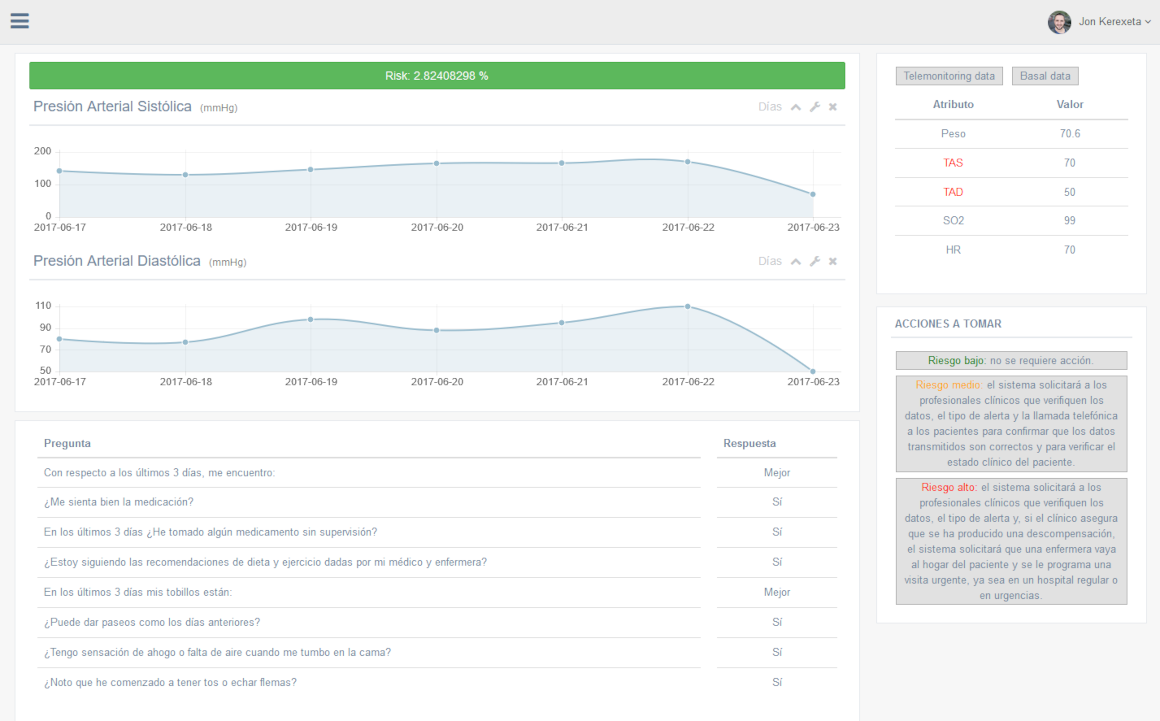Hear Failure decompensation prediction
Heart Failure (HF) is a condition in which the heart can no longer efficiently pump oxygen-rich blood to the rest of the body. Therefore, patients with heart failure are susceptible to cardiac decompensation. This causes different organs throughout the body to fail as there is not enough blood to supply all of these organs, leaving them without adequate resources to perform their functions. These decompensations are not instantaneous, rather organs begin to fail gradually, and the symptoms appear as time goes by. Therefore, the earlier a decompensation is detected, the less damage it causes the patient.
In this situation, SHAPES Platform provides clinicians with a way to detect the patient’s decompensations as early as possible. To do so, daily telemonitoring is performed, both for clinical variables (e.g., weight) and questionnaires that estimate the patient’s well-being. This information is automatically displayed in real-time for the clinicians, so they are aware of the patient’s health evolution at the moment.
In addition, artificial intelligence models are used to estimate the probability of a cardiac decompensation within 7 days. This is beneficial in two ways: 1) it automatically estimates the risk of decompensation and can intervene quickly, and 2) it speeds up the clinicians’ work when reviewing all patients’ data by stratifying patients in terms of risk.
SHAPES Platform provides clinicians with a tool to detect, intervene and prevent further decompensation in HF patients.



